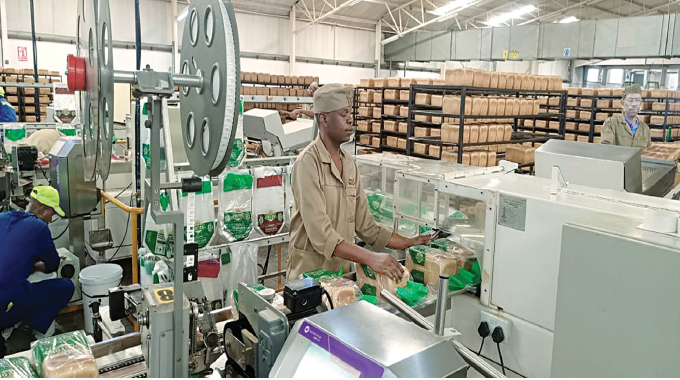RBZ to prioritise forex allocation

Harare Bureau
THE Reserve Bank of Zimbabwe has come up with a facility prioritising foreign currency allocation to companies benefiting from the import restrictions to increase production.
Companies with potential to export, but are facing financial challenges to produce are also benefiting from the facility, Industry and Commerce Minister Mike Bimha said.
The facility is aimed at enhancing exports and comes at a time when the country is facing serious forex shortage, which has resulted in some firms failing to import raw materials.
“We have supported them through temporary imports restrictions and in the long run, they should be competitive when we open up the markets,” said Minister Bimha.
Last year, the Government invoked SI 64 of 2016, which temporarily regulates importation of certain products that can be produced locally to boost capacity of local firms.
Some of the products, which were removed from Open General Import Licence include mayonnaise, salad cream, peanut butter, jams, mahewu, canned fruits, vegetables, pizza, yoghurts, flavoured milks, dairy juice blends, ice creams, cultured milk, cheese, coffee creamers, camphor creams, white petroleum jellies, body creams and plastic pipes.
The introduction of the SI 64 has seen some companies raising production to more than 80 percent.
In light of foreign currency shortage and the growing foreign payment backlog, Minister Bimha challenged companies “to think outside the box” and come up with structures with their “connections” to source foreign currency.
“Companies just have to be innovative. It’s not the issue of the central bank alone, it is the issue of all of us.”
Most manufacturers continue facing foreign currency shortages to import raw materials and packaging materials. In an interview recently, Confederation of Zimbabwe Industries president Mr Busisa Moyo said raw material shortages
have rendered some workers redundant, resulting in companies introducing short working weeks.
Analysts say while Zimbabwean companies had started registering growth in terms of capacity utilisation, thanks to imports restrictions on selected products, the shortage of foreign currency was likely to reverse the growth.
The CZI said capacity utilisation rose to at 47,4 percent last year from 34,3 percent in 2015, largely driven by increased local production.
Meanwhile Minister Bimha said the Government would continue engaging the workers of Zimbabwe Iron and Steel Company over outstanding salaries and packages for retrenched employees as well as what the Government was doing to revive the company.
“Last week, I met with employee representatives of Zisco as part of my routine visit,” said Minister Bimha.
“I re-assured them that the Government is committed to see the company revived and to ensure all outstanding obligations to employees are met.”











Comments